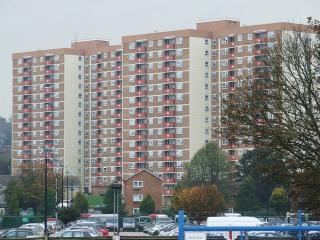Seeking Development Rights, Finding an Assessment Increase

Lately, property owners applying for increased density are getting mid-cycle reassessments regardless of approval. What problems does this new practice cause?
The New Trend in Mid-Cycle Reassessing
Lately, we are seeing more and more Highest and Best Use cases coming through our offices. Clients who have made the smallest move toward acquiring development rights are having their assessments increased mid-cycle. It seems that MPAC is not wasting any time going after the potential developer.
This is resulting in large assessment increases with no actual increase in development (or development rights for that matter), and many similar properties are being assessed at different values. For example, there are four large multi-residential apartments on one block in the west end of Toronto. One owner has begun the long and arduous process acquiring development rights to increase density. Will he be approved? Who knows. When will he be approved? Who knows. Nevertheless, nothing will be built for years to come.
MPAC gets wind of the application and increases his assessment mid-cycle. To them, the intent to develop is enough to increase value. Now we have a situation where this property is assessed at nearly double that of the almost identical buildings on the block. No development has yet been approved but the property is being assessed as if the development value has now been realized. This example is typical of what we are seeing.
When Should the Property Value Actually Increase?
In cases like this, the inevitable question becomes – when is redevelopment likely, possible or probable? Is there a line that must be crossed before MPAC can justifiably increase the assessment value? Should it be as soon as a development application is made? Or only when zoning is approved? Or when shovels finally break ground?
Until we have some more direction from either the Assessment Review Board, the Courts, or the Province, I predict that we will be seeing many more cases with this as the main issue.
This new trend has the potential to chill redevelopment in the province as owners will be weary of a property tax increase simply for inquiring about development. It also creates a large assessed value inequity between similar properties.
We have been successful in challenging these mid-cycle assessment increases (Here is an example), but MPAC has not slowed in applying them. We hope this trend is short lived.
If you have received a mid-cycle increase based on a development proposal, contact our offices to discuss some options.
- Log in to post comments

